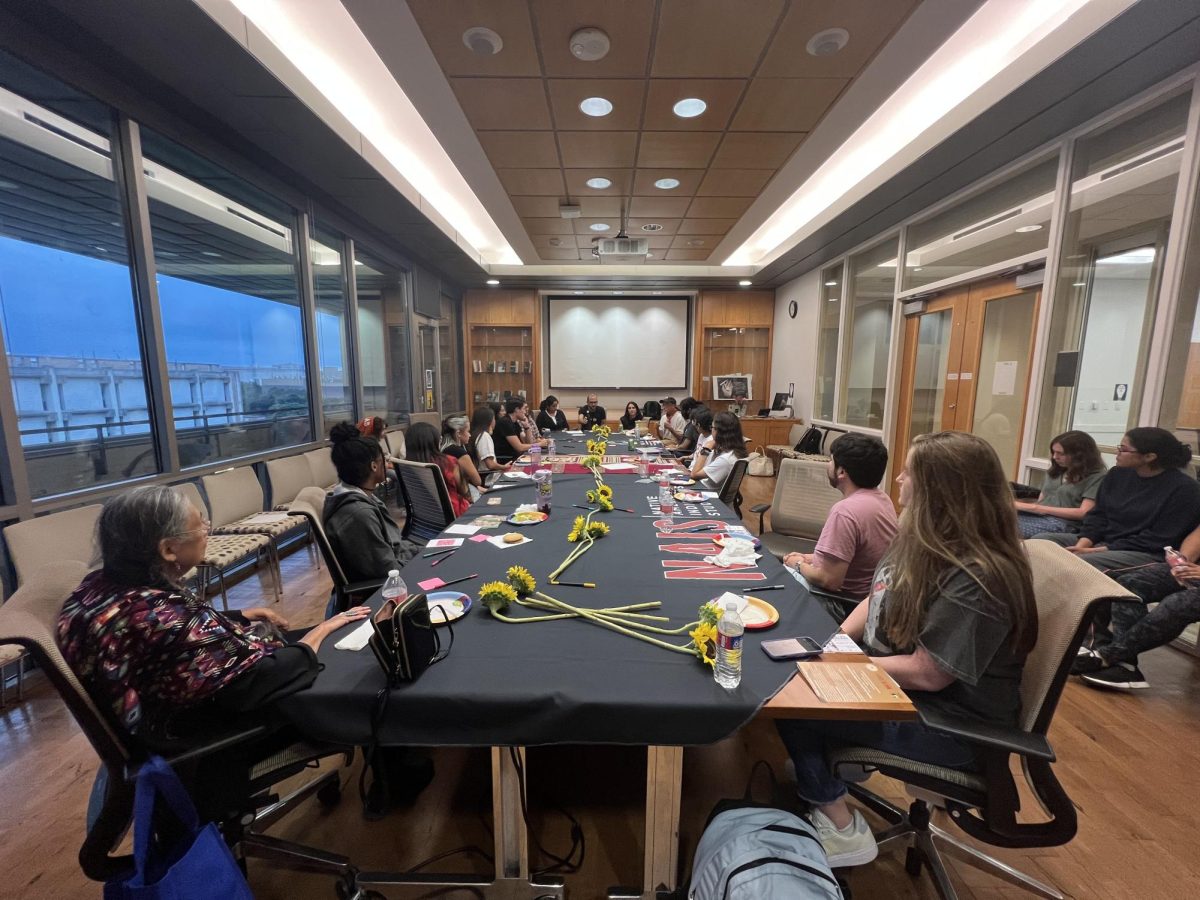Students, staff and community members shared why and how they connect with indigenous languages at “Living Our Languages: Roundtable and Open Mic,” the first University event centered around the importance of indigenous languages. Held at the William C. Powers, Jr. Student Activity Center on Oct. 11 and hosted by student organizations Native American and Indigenous Collective and Native American and Indigenous Peoples’ Association, this event followed earlier events celebrating Indigenous Peoples’ Week.
“We wanted to center the nuances that come with indigenous languages,” said Kennedy Cortez, NAIC public relations chair. “(We focused on) bringing together community to talk about the grief that not being able to speak your own indigenous language brings and also the happiness and the connection it does bring whenever you do have access to your language.”
Many attendees, like Cortez, said they were not aware of their indigenous roots growing up, but are working to strengthen their connection as adults. Some attendees said they grew up aware of their indigeneity but didn’t get the chance to learn their language, while others said they learned over the years.
“We wanted to open up conversation mainly for us all to get validation for the reasons why we might not know our indigenous language,” neuroscience senior Cortez said. “Validation for the fact that even if we don’t know our native language, we are still indigenous, and validation for the fact that it’s not our fault that we don’t know our native language.”
Avery Tovar, NAIC community engagement chair, said at the event that she is learning her Comanche language, a task made difficult due to only a small portion of her nation speaking the language.
“A big part of indigenous history, especially in the United States, is residential schools, basically forced assimilation of native children,” undeclared sophomore Tovar said. “One of the first things that was taken away from us was our language. They weren’t allowed to speak it, and by that process, a lot of the language has been lost.”
Several attendees sang songs in their indigenous languages during the open mic, including Cortez who sang a ceremonial Nahua song.
“Songs like these are very important because they’re written in our indigenous languages and even if you can’t necessarily speak your language fluently, just having a song that honors your ancestors, that honors the land, that honors yourself — it’s an honor,” Cortez said.
Cortez is learning Nahuatl as part of the University’s Indigenous Languages Initiative, which also provides classes in Quechua, Maya K’iche’ and Mapuche languages.
“Indigenous languages are not only about linguistic education but are a way for us to learn about the broader knowledge systems, cultures and histories of native societies,” said Luis Cárcamo-Huechante, director of Native American and Indigenous Studies. “The event reflected a profound interest in getting linguistic, cultural and historical education about indigenous peoples among our students.”
Cárcamo-Huechante said he hopes the University creates opportunities to teach indigenous languages from the United States in addition to the Latin American languages taught.
“Because language was lost, so were our stories and our history,” Tovar said. “Living in our languages and examining the nuance of that allows us to not only reconnect to our history but celebrate it as well.”














